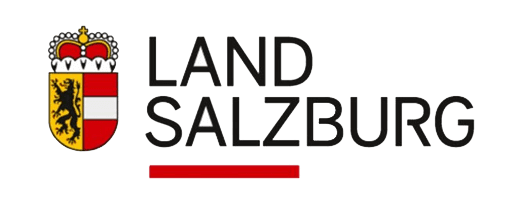Anwendung Details
Datum:
1.5.2020 – 30.4.2023
Unsere Kompetenz:
Data Analytics
Studio:
iSPACE 4D ENVIRONMENTS
Auftraggeber:
Im Projekt „Alm und Gesundheit“ untersuchen das Research Studio iSPACE, die Paracelsus Medizinische Privatuniversität Salzburg (PMU) und die Universität Salzburg (PLUS) gemeinsam die Effekte eines Almaufenthaltes auf die Gesundheit von StadtbewohnerInnen.Aufbauend auf einer jahrhundertealten Tradition spielen Almwirtschaften im Bundesland Salzburg besonders im regionalwirtschaftlichen und touristischen Aspekt aufgrund von 1.800 aktiv bewirtschafteten Almen eine bedeutende. Betrachtet man Almen aus dem Blickwinkel der Gesundheit, ist ein wesentliches Potential im Gesundheitsbereich zu erkennen: Almen bieten eine Vielzahl gesundheitsfördernder Faktoren. Neben der reinen Luft, dem Vitamin D-Aufbau, der Höhenlage und Bewegungsförderung gibt es eine neue wissenschaftliche Hypothese, dass die hohe Biodiversität an Mikroorganismen von Almen (das Alm-Mikrobiom – bestehend aus Bakterien, Pilzen und Archaeen) über komplexe immunologische Regelkreise antientzündlich und gesundheitsfördernd wirkt.
Die Mikrobiomforschung hat das Verständnis von Gesundheit und Krankheit im letzten Jahrzehnt so stark beeinflusst wie kaum ein anderes Thema. Nach derzeitigem Stand der Wissenschaft scheint v.a. die Diversität des Mikrobioms – also der Gesamtheit aller Mikroorganismen, die mit dem menschlichen Körper vergesellschaftet sind – bei der Gesunderhaltung des Menschen die größte Rolle zu spielen. Die Ermöglichung eines regen Austausches zwischen dem menschlichen Mikrobiom mit Mikroben aus der Umwelt ist in Anbetracht der stetigen Urbanisierung, welche das Spektrum an Mikroorganismen zusehends verringert und zugleich jedoch das Risiko von Erkrankungen wie Allergien, Asthma, Autoimmunerkrankungen oder Zivilisationserkrankungen verstärkt, fundamental.
Der Alpine Naturraum, vor allem Almen bieten aufgrund der Vielfalt dieses Lebensraumes ein enormes zukünftiges gesundheitliches Potential. Das Projekt soll das Alm-Mikrobiom verschiedener Salzburger Alm-Typologien analysieren und über die Unterschiede zwischen Alm- und Stadtmikrobiom eine Innovationsgrundlage für die Positionierung von Almen als gesundheitsfördernde Lebens- und Erholungsräume schaffen. Die Typisierung erfolgt sowohl über naturgeographischer Aspekte wie Klima, Topographie und Landbedeckung als auch anhand der Bewirtschaftungsform und Auftriebszahlen. Darauf aufbauend soll eine klinische Studie zur Wirkung eines Almaufenthalts und seines spezifischen Mikrobioms auf die Gesundheit von GroßstadtbewohnerInnen durchgeführt werden. Das übergeordnete Ziel des Projektes ist der Aufbau einer regionalen Innovationskompetenz zur nachhaltigen Inwertsetzung von Almen als gesundheitsfördernde Lebens- und Erholungsräume.
Das Projekt trägt zu einer Attraktivitätssteigerung des Salzburger Natur- und Kulturraums als Arbeits-, Lebens- und Erholungsraum unter Einbindung von Wissenschaft und Innovation bei. Zudem werden Grundlagen für Folgeprojekte und für die Entwicklung von neuen touristischen Angeboten geschaffen. Die Synergien von Gesundheitstourismus und Land- bzw. Almwirtschaft führen zur Entwicklung innovativer nachhaltiger Wertschöpfungsketten mit kurzen Transportwegen und regionalen Wirtschaftskreisläufen.
Die Universität Salzburg (PLUS) und die RSA FG / Studio iSPACE kooperieren mit dem Ziel Innovationen im Kontext der Datenwissenschaft (Geoinformatik) schneller in unternehmerische und gesellschaftliche Anwendungen zu bringen (Stärkung Third Mission Aktivitäten).
Lesen Sie auch die aktuellen Presseberichte zum Projekt:
DIE PRESSE, 31.10.2020
„Fördert „Almbaden“ die Gesundheit?”
Salzburger Nachrichten, 06.06.2022
„Melken und Ausmisten sollen die Gesundheit stärken“
Salzburger Nachrichten, 15.09.2022
„Käsen und ‚Heign‘ für die Gesundheit“
Der Standard, 10. Juni 2023
Warum Almbesuche gut für die Gesundheit sind




